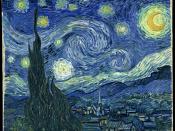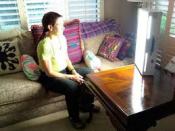Overview and Evaluation of Available Treatment Options for Bipolar Disorder |
�
Bipolar Disorder is a mood disorder previously known by the name manic-depression. In modern times it has been renamed Bipolar disorder (BPD) to emphasize the dual mood character of the illness that is quintessential in its most common clinical presentation (Columbia Electronic Encyclopedia, 2008). Those afflicted with Bipolar Disorder typically experience alternating mood episodes of depression and mania. Depressive episodes are characterized by symptoms of lethargy, social withdrawal, diminished ability to concentrate, and excessive feelings of worthlessness and guilt. By contrast, manic episodes present with a markedly elated or irritable mood, grandiosity, decreased need for sleep, and impaired rational judgment. Of noteworthy mention is the fact that, out of the entire population of those suffering with Mental Illness, those afflicted with BPD has the highest rate of suicide (Columbia Electronic Encyclopedia, 2008)
In the realm of conventional medical treatment of Bipolar Disorder, the options available for treatment are mainly limited to prescription drug treatment and Electroconvulsive Therapy (ECT).
Within the Allopathic (mainstream medicine) community, the most common choice by physicians of these various options is the use of a combination of prescription medication (Encyclopedia of Alternative Medicine, 2008). The types of drugs prescribed by healthcare professionals in treating manic-depressives spans a wide range of medicinal drug classes. These include mood stabilizers, antipsychotics, anticonvulsants, anti-anxiety, and antidepressants (Encyclopedia of Alternative Medicine, 2008). ECT, although having a very high rate of success for treating both the depressive and manic phases of BPD, is typically only used after all other pharmacotherapy has failed; This being due to convince of prescription drug treatment and the strong stigma associated with Electroconvulsive Therapy (Encyclopedia of Alternative Medicine, 2008).
Psychosocial treatment options (i.e. psychotherapy) have only relatively recently been explored by the medical community as...


